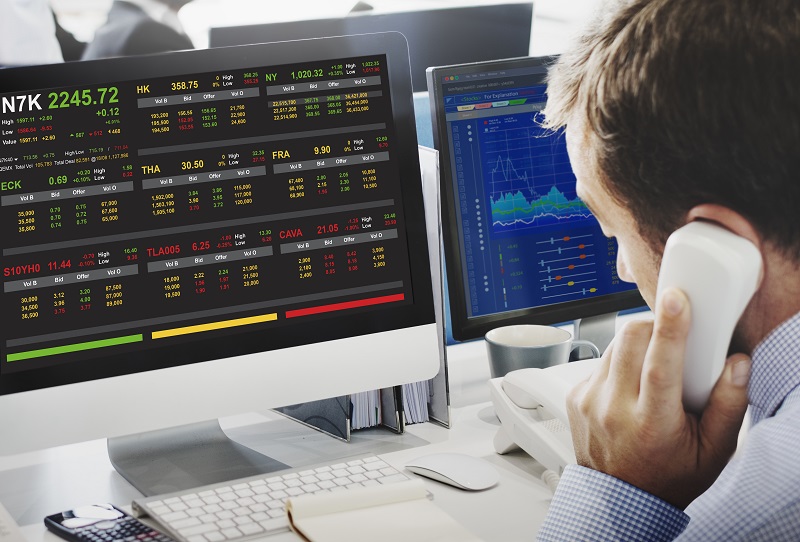What Is Pre Market Trading And How It Works?
Pre market trading was previously restricted to institutional investors, but more and more internet brokers are now allowing pre market trading to ordinary clients.
Pre-market trading occurs before the stock exchange’s regular trading hours and allows investors to buy and sell stocks before the market opens. And premarket trading hours in the United States are typically from 8 a.m. to 9:30 a.m. ET, however certain stock exchanges execute deals as early as 4 a.m., and as an investor, you can place orders and invest in dapper labs stock for premarket trades prior to those trading hours.
This post will teach you the fundamentals of premarket trading and how it works.
What Is Pre market Trading?
Pre market trading refers to completing a transaction on the stock exchange before the market formally opens for business, which is usually an hour before the actual session begins. However, activity in premarket trading is limited, and traders monitor the continuous swings in the key premarket stocks and securities through best stock tracking software.
Traders can learn about current volumes and the negative and positive imbalance in shares by observing the difference in sales and purchase orders with the help of different tickers.
Securities on the New York Stock Exchange and Nasdaq, for example, are allowed to trade in the premarket, although only the largest and most liquid funds often trade during this time.
Furthermore, many corporations frequently disclose critical news outside of typical trading hours, such as some companies reporting their quarterly earnings before the market opens in the morning, or may announce major collaborations and new products.
However, such news has a significant impact on the value of a company’s stocks, which is why we frequently see a stock’s share price open at a much different price than its previous closing.
How Does Premarket Trading Work?
Pre market trading differs from normal trading hours in that orders during the trading day are routed through an exchange such as the Nasdaq or the New York Stock Exchange, whereas premarket trades use an electronic communications network or ECN to trade.
Your broker provides an ECN service, which matches buy and sell orders and executes the trade. Although it effectively permits trading, it has several limitations, such as the ability to only utilize limit orders on an ECN and the ability to place market orders for stock trades that fill at the prevailing rate during the trading day.
A limit order, on the other hand, requires you to name your price, and there is no guarantee that the trade will execute, and if it does, it will execute at your price or better.
You can place a pre market trade order by logging into your brokerage account, as your broker may have a separate section of their website for premarket trading orders.
And, once you’ve found the right spot to place your order, you can place a limit order specifying how many shares you want to purchase or sell as well as the price you’re willing to accept. After you make your order, the broker will submit it to the ECN, which will then try to match it with other orders on the network based on limit prices.
If the ECN discovers a match, the trade is executed, and your order settles in two trading days, exactly like during normal trading hours.
How To Trade During Pre market Trading Hours?
Making a premarket trade is as simple as making a deal during regular trading hours, but purchasing and selling stocks and funds takes a few extra steps.
Step 1 – Decide your trade
Premarket trading is similar to ordinary trading in that you must enter the ticker symbol of the stock or fund, the amount of shares you wish to trade, and the sort of order you want to place, whether a limit order or a market order.
Step 2 – Set trade conditions
If your broker allows you to pick the time period for the trade, you can choose from the following trading hours:
- Regular hours – By selecting this time period, your order will only be executed during the normal session, when the market is most liquid.
- Regular or premarket hours – By selecting this option, your broker will be able to complete the trade during the regular session or during premarket hours.
- Only in premarket hours – This option allows you to limit the trade to only execute during premarket trading hours.
It has been observed that the market is substantially less liquid during premarket hours, so using limit orders makes a lot of sense, but you will need to indicate a price you are ready to accept. Setting a price to accept will help you avoid the trade executing at a price that is significantly different from the security’s most recent trading price, and some brokers only allow the use of limit orders during premarket trading sessions.
Step 3 – Place the trade
After you have set the transaction terms, you can submit the trade to your broker.
However, don’t be alarmed if the deal doesn’t execute immediately or even if it never does because trading in the premarket hours lacks the liquidity required for your order to complete; you’ll need someone willing to make the trade at your price. As a result, the market may be unavailable at any price, forcing you to wait for your deal to be processed.
Who Can Trade During The Pre market Trading Hours?
Premarket trading was previously restricted to institutional investors such as mutual funds and other professional traders, but not to individual investors. Individual investors, on the other hand, are now welcome to participate in premarket trading, and typical participants include:
- Institutional investors – These include mutual funds and huge investment firms with direct market access and unique agreements with brokers or exchanges.
- Professional traders – Traders that use specialized trading platforms or software to conduct transactions during premarket trading hours are referred to as professional traders.
- Market makers – Market makers give liquidity to the market by regularly participating in bid and ask prices, and they assist keep the market orderly.
- Experienced investors – Some qualified investors are also granted access to trade in premarket sessions by their brokerage firms in exchange for meeting certain particular conditions or maintaining a certain account balance.
Furthermore, the leading exchanges of US stock exchanges, such as Nasdaq and the New York Stock Exchange, provide premarket trading facilities for individuals and institutional investors that prefer trading stocks before trading hours.
Takeaway
If you prefer to stay up to date on the latest news and information about a company, you may choose to trade during premarket trading hours. Although the technical features of premarket trading can be more sophisticated than trading during normal business hours, brokers are making it available to individual clients.
FAQs
1. Can I trade before the market opens?
Yes. Many online brokers provide premarket trading. Check with your broker for hours, costs, and instructions on how to place an order.
2. Who can purchase or sell during premarket trading hours?
There are no restrictions on who can buy premarket. You can place an order for the premarket session if you have a brokerage account and access to an electronic communications network.
3. Is it a smart idea to buy stocks and ETFs during the premarket?
The answer to whether buying premarket is a good idea is, like with most things in personal finance and investment, “It depends.” Premarket trading may be a smart idea if you are actively following a stock and the company’s news releases, have a good understanding of how to swiftly interpret the news as it comes out, and can make quick decisions. It’s also a smart idea if premarket trading permits you to execute a trade for stock at a price you’re comfortable with that you wouldn’t be able to achieve during normal trading hours.

